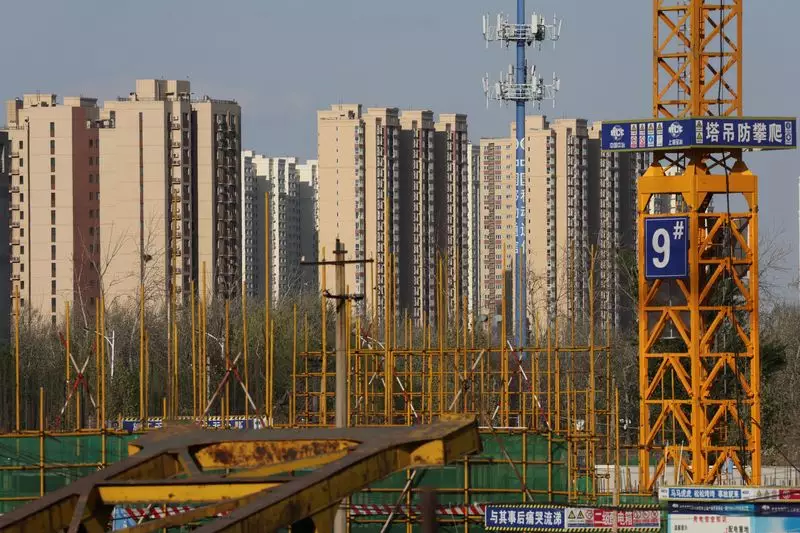China’s property market is currently navigating treacherous waters, driven by a confluence of financial strains and declining consumer confidence. Recent official data reveals a striking trend: new home prices have dropped considerably, marking the steepest decline in over nine years. Such a downturn raises critical questions about the future of the sector and its broader implications for the Chinese economy. As supportive measures fall short of reviving buyer interest, stakeholders are left contemplating the complex dynamics at play.
Data from the National Bureau of Statistics (NBS) showcases a notable decline in new home prices, which fell by 5.3% year-on-year in August 2023. This alarming figure not only surpassed the previous month’s decline of 4.9% but indicates a broader trend that has seen home prices slip for 14 consecutive months, now down 0.7% from July. Such a sustained downturn suggests serious underlying issues within the property sector, permeated by deeply indebted developers and a backlog of unfinished properties that deter potential buyers.
Moreover, investment in property has drastically decreased, plummeting by 10.2%, and home sales have suffered an even greater setback with an 18% year-on-year decline over the first eight months of the year. These statistics paint a picture of a market in distress, struggling against both external pressures and internal complications.
The struggles within the property market extend far beyond mere statistics. Developers are grappling with rising debt levels, which hinder their ability to complete ongoing projects. Many buyers are left in limbo, unable to occupy homes for which they have already paid. This uncertainty has severely damaged consumer confidence, leading to a significant reduction in demand for new homes.
A critical analysis reveals that while large metropolitan areas have seen some feeble signs of recovery thanks to lowered mortgage rates and incentives, smaller cities are suffering considerably more. These areas, characterized by high inventories of unsold properties and fewer restrictions on purchases, exhibit particularly weak demand. The challenge for policymakers in Beijing is to balance the varying needs of diverse locales while preventing an all-out collapse of the housing market.
In response to the deteriorating conditions, Chinese authorities have ramped up efforts to stimulate the property sector. Such measures include mortgage rate reductions and the introduction of various fiscal incentives designed to lower the cost of home buying. While these steps have yielded some positive effects in larger urban centers, they remain insufficient to reverse the overarching trend of declining prices and sales.
Looking ahead, economists predict a continued decline in home prices, estimating an 8.5% drop in 2024 and a further decrease of 3.9% in 2025. The slow bottoming out of the market conveys a stark message: recovery is likely to take a significant amount of time, as consumer demand, household income, and overall market confidence remain tenuous.
Furthermore, many financial analysts suggest that the government may need to assume the role of “builder of last resort,” providing direct funding for stalled construction projects that have already garnered consumer interest. Such drastic measures could serve as lifelines for the many properties currently stranded in mid-construction, creating pathways for completed homes to finally enter the market.
The future of China’s property market remains shrouded in uncertainty, with mounting pressures from economic slowdowns and a populace wary of investment. Analysts believe aggressive monetary policy shifts—including potential interest rate cuts—are on the horizon to alleviate the burdens faced by homebuyers and developers alike.
However, as the government implements these policies, it faces the formidable task of restoring faith in the property market. Without a clear and effective strategy to enhance consumer confidence, stabilize home prices, and foster sustainable growth, the ramifications for China’s broader economy could be severe. The coming months will be crucial in determining whether the property sector can recover or if further declines will ensue, impacting a significant portion of the Chinese populace and economy.

